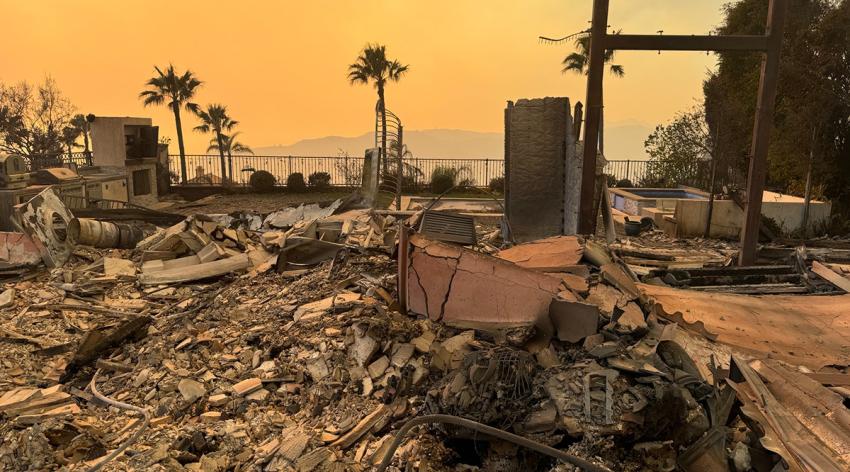Climate Action and Sustainability in Academic Medicine
Climate change is the greatest public health threat of the 21st century. And the health care sector is part of the problem, responsible for almost 4.4% of carbon pollution worldwide and 8.5% in the United States.
Academic health systems and medical schools along with the AAMC are pursuing conservation-smart health care to improve health outcomes, lower costs, enhance efficiency, and contribute to clean air and water for patients, families, and communities.
Below is an overview of the AAMC’s sustainability and resilience work as well as opportunities for you to connect with peers, share your experiences, and learn from experts.
On this page:
Key Reports and Initiatives
Academic medicine plays a major role in accelerating innovative methods and solutions to achieve net-zero carbon pollution, reduce medical and food waste, adapt to risks, build strong institutional and community resilience, lower costs, and improve quality. The AAMC supports these efforts with foundational scholarship and key partnerships as well as by preparing the physician workforce for the impacts of environmental harms on patients and communities.
Research on Academic Health System Leaders’ Role in Sustainability
This 2025 study published in NEJM Catalyst explores how leaders of academic health systems are drivers of climate action and sustainability. The research found five key factors shape how leaders work to reduce carbon pollution and increase resilience.
Climate Action in Academic Medicine Report
This overview of how medical schools and academic health systems are responding to climate change provides a foundational look at climate action in academic medicine. As of November 2022, 80% of medical schools and their parent universities and 50% of academic health systems were engaged in some level of climate action and sustainability efforts.
Climate Action and Sustainability Virtual Community
This free virtual gathering place is designed for individuals who have a professional or educational interest in sustainability and climate action across their organizational missions (clinical care, research, education, community engagement, and operations and facilities). This effort is supported by the AAMC, the American Society for Health Care Engineering, and Practice Greenhealth. The combined resources of our organizations can advance the critical work of academic health systems to address climate change across the missions of academic medicine.
Emerging Physician Leader Award and Scholarship
The AAMC offers this award in collaboration with Health Care Without Harm. The award recognizes a medical student, resident, or fellow who has demonstrated a passion for sustainable health care or a commitment to climate and health leadership.
Thought Leadership
The AAMC is a member of the National Academy of Medicine Action Collaborative on Achieving a Climate Resilient and Sustainable Health Sector, a public-private partnership of leaders from across the health system committed to addressing the sector’s environmental impact while strengthening its sustainability and resilience. AAMC President and CEO David J. Skorton, MD, is a member of the steering committee.
The AAMC has also authored commentaries to advance the conversation on sustainability and resilience and to galvanize the academic medicine community:
Medical Education
To better equip current and future clinicians and educators to effectively navigate the health effects of climate change and the role of academic medicine in taking climate action, medical education curricula have begun to adapt.
Curricula at U.S. Medical Schools on the Health Impacts of a Changing Environment
This 2025 report reviews the scope of curricula at U.S medical schools on heat, extreme weather, air pollution, vector-borne illnesses, water contamination, and other environmental harms. It is available only to members of the AAMC Communities.
Global Consortium on Climate and Health Education (GCCHE)
The GCCHE works to ensure all health professionals around the world have the expertise needed to prevent and respond to the health impacts of climate change and to improve the quality of health and well-being of all. The AAMC is an association member.
Climate Change and Medical Education Resource Bundle
This Virtual Community collection provides resources from the AAMC and beyond, focused on adapting medical education to include climate change and its health effects. Featured are descriptions of climate change and planetary health curricula, resources for educators, podcasts and videos of interest, and an overview of the national organizations and initiatives promoting climate action in medicine. Registration is required.
Climate Health Curriculum Tool (CHCT)
The CHCT is a comprehensive, evidence-based framework designed to guide undergraduate medical educators in developing, implementing, and evaluating climate health education. The CHCT is available to download in PDF and Excel form. Also available are a user guide and a peer-reviewed article on the development of the tool.
Environmental Justice and Health Care
Climate change and environmental hazards disproportionately affect communities made vulnerable by social and economic disparities. The AAMC Center for Health Justice has identified environmental justice as one of the most pressing health care issues facing people across the United States.
Down to Earth: U.S. Adults Back Environmental Justice, But Policy Awareness Falls Short
This polling brief highlights national perspectives on environmental justice and underscores the need for increased public awareness of federal policies and actions aimed at addressing environmental justice health disparities.
Rising Tide
This polling brief examines both youth and adult perspectives on climate change and emphasizes the importance of creating opportunities to empower young people in driving climate-action decisions.


